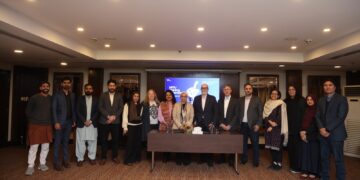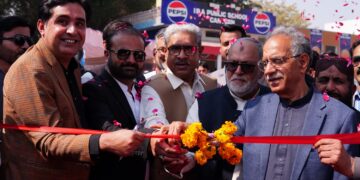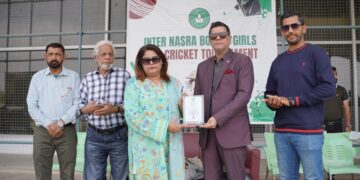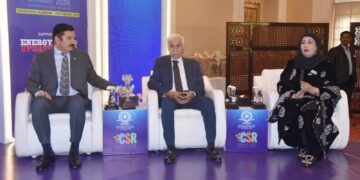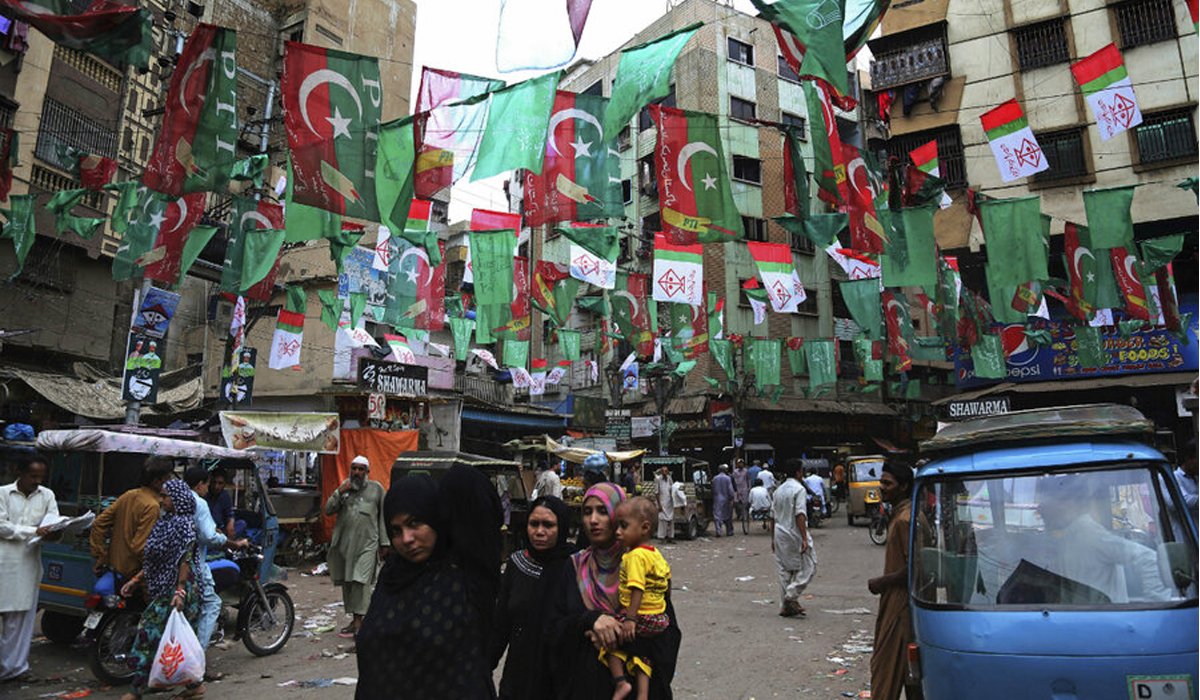Government must formulate long-term, durable and consistent policies to combat the declining trend in the textile Sector manufacturing and our exports around the world, this was stated by Sheikh Sultan Rehman Vice President of the Federation of Pakistan Chambers of Commerce and Industry (FPCCI) in an interactive webinar on “Textile Industry of Pakistan: Challenges & Way Forward” organized by FPCCI Head Office Karachi via Zoom video link.
The webinar was attended by Representative of All Pakistan Textile Mills Association (APTMA), Chaudhry Muhammad Nawaz, Chairman Pakistan Cotton Power Looms Association, Mr. Naqi Bari, CEO Bari Textile Mills, Ms. Qaisra Sheikh, Coordinator-Women Entrepreneur FPCCI, Mr. Danish Javed, Executive Committee Member FPCCI, Ms. Shagufta Rehman, Senior Vice President Women CCI Lahore and members from different trade bodies of Pakistan of the textile and related sectors.
While welcoming the participants, Sheikh Sultan Rehman Vice President FPCCI said that since 1950s, the textile sector of Pakistan has been the main driving force of our economy, with more than 60% share in our total exports and offers employment to almost 40% of our work force. However, there has been decline in our manufacturing as well as exports of textile products in recent years. He further said that government must take immediate measures for the timely refunds of sales and income tax, issuance of income tax exemptions on utility bills, and resolve issues faced by this export-oriented sector as these measures will help control the liquidity crunch faced by the stakeholders who are already facing hardship in the prevailing economic conditions.
During the discussion, Mr. Naqi Bari, CEO Bari Textile Mills said that decline in the production of cotton have increased the cost of manufacturing textile products which have ultimately affected our exports Pakistan. He further said that we must increase our cotton production along with value addition to increase our exports. Mr. Danish Javed, Convener FPCCI Standing Committee on Bed wear said that Bangladesh studied from our success in the textile sector and implemented effective policies which helped their textile Industry and economy to grow a lot. He further said that we demand the exemption of import duties on spare parts for textile machinery as well as restoration of of zero rating which have created severe liquidity crunch for the textile exporters. Chaudhry Muhammad Nawaz, Chairman All Pakistan Cotton Power Looms Association said that this sub-sector is mainly comprised of SMEs who are severely affected in present times and needs special support from government to revive again. He further highlighted that commercial banks are reluctant to extend loans and financing schemes to SMEs particularly in Faisalabad. Mr. Nawaz on this occasion appreciated the initiative of FPCCI of taking all the stakeholders under one roof through video link for discussion on this important topic.
Representative from APTMA also said that issues of regionally uncompetitive industrial tariffs as well as high turnover taxes are one of the few major reasons of continuous decline in the manufacturing of textile in the economy. He further said that we should learn from the examples of Bangladesh and Vietnam who timely addresses these issues and now their textile sectors are playing an important role in their economic development. Ms. Qaisra Sheikh, Coordinator Women Entrepreneurs FPCCI said that FPCCI is the most relevant platform for the business communities to address these issues. Ms. Shagufta Rehman, Senior Vice President Women CCI Lahore stated that government must extend support to women entrepreneurs particularly belonging to textile sector. Taking the opportunity, she also identified the issue of commercial banks’ reluctance to release the loans schemes to women entrepreneurs.
Concluding the event, Sheikh Sultan Rehman, VP FPCCI invited all the stakeholders belonging to this essential segment of the economy to send their suggestions and proposals so that same can be pursued with relevant government departments.








